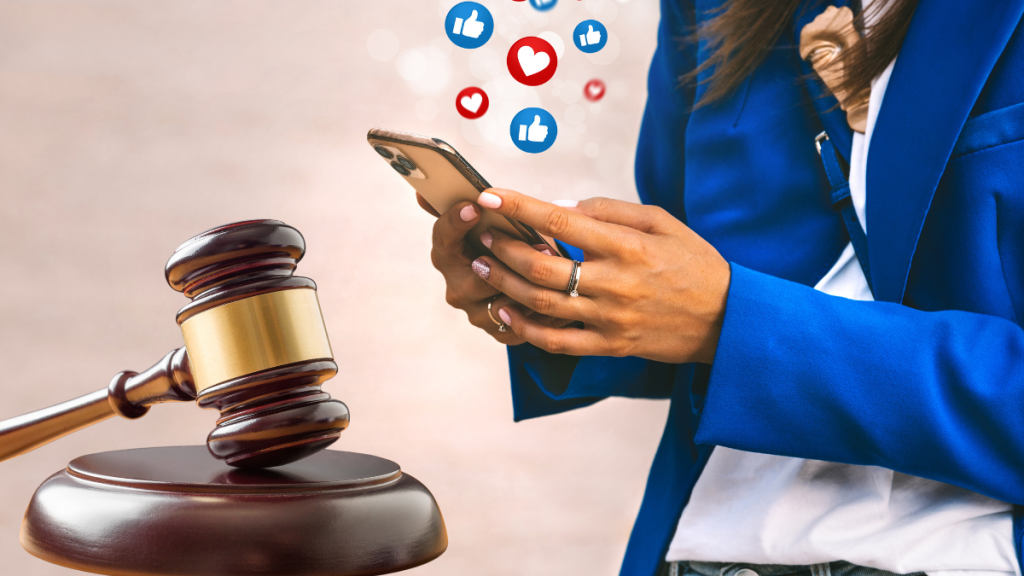Social media provides people from around the globe a space for them to express themselves freely, exchange thoughts and information freely, and connect. Every like, share, comment and like can have immense power – the casual nature of online engagement doesn’t protect either people nor corporations adequately; thus, social media law has evolved significantly over time in response to all this digitalisation of society and ensure all content produced, shared or made money off should remain legal, responsible, fair and accountable in an ever-more-digitalized society.
Introduction To Social Media Law
Social media law refers to the body of rules that dictate online behavior. These regulations cover topics like privacy, copyright infringements, defamation of character and intellectual property rights that apply both personally and commercially when using platforms like Facebook, Instagram, TikTok or X. Many don’t realize that similar laws which exist offline also exist online – including laws against libel, fraud and trademark infringements – yet many users still think their behavior online doesn’t break these regulations.
Brands must take great care in what they post online, how they interact with customers, and use any user content created by users. Individuals need to remember that everything they say online may have long-term ramifications, as their digital footprint can have legal repercussions.
Protecting Brands Through Legal Compliance
Social media law presents businesses with unique challenges. Each post that displays their brand to an audience could lead to legal ramifications; copyright infringement (using someone else’s video, image or music without authorization) is one of the primary threats they face online; even harmless posts featuring unlicensed music could land them in hot water with authorities or result in content removal altogether.
Protecting trademarks is also of utmost importance for companies. Businesses need to ensure that their brand names, logos, and slogans aren’t misappropriated on social media or altered without authorization by other people’s protected marks in ways that might confuse customers and create brand dilution issues for themselves or third-party protected marks owned by another party. Many organizations increasingly rely on social media monitoring technologies in order to identify trademark violations quickly and take swift action against them.
Brands must abide by advertising and disclosure rules when advertising items and services through influencers, usually using hashtags like #ad or #sponsored to indicate this partnership with companies. Being transparent helps customers develop trust for brands while adhering to rules set out by organizations like the Federal Trade Commission in America, as well as elsewhere around the world.
User Rights And Privacy Protections
Companies must abide by marketing rules; individuals have legal protections in place that ensure their personal information and online rights. Both Europe’s General Data Protection Regulation (GDPR) and California Consumer Privacy Act (CCPA) provide people with control over how their data is gathered and distributed.
Social media sites must establish clear privacy rules, providing their users with options not to have certain kinds of data tracked and deleted or to view what data a corporation holds on them. Such guidelines ensure personal information doesn’t get used for marketing or spying without explicitly giving their approval.
Defamation legislation offers vital protections to protect people against false or harmful statements posted online. Both brands and individuals need to exercise extreme care when posting anything to social media as defamatory remarks can quickly spread, doing irreparable damage. Anyone posting false claims that cause reputational damage could face legal ramifications as they will be held legally responsible.
Influencer Accountability And The Rise Of Digital Ethics
The influencer economy has made it hard to distinguish between personal expression and advertising. Influencers are legally obliged to inform people when they receive payments to promote products/services/causes without deceiving followers; otherwise, they risk fines, reputational damage, and credibility loss. If that doesn’t happen, then fines could follow, and credibility is lost for good!
Social media law compels users to act morally online. People hold platforms accountable for restricting hateful and false speech from appearing on their platforms; at the same time, they strive to ensure safe environments while still giving users space to express themselves freely – often by adhering to community standards or working alongside regulators.
Balancing Freedom And Responsibility
Social media must remain free-wheeling in order for it to function, yet being open also involves taking responsibility. One of the primary topics in internet regulation today is how best to balance free expression with legal constraints imposed upon its use – governments and courts around the globe are constantly altering what people can post online in terms of false news stories, political propaganda, or bullying behavior.
Users can avoid breaking the law by understanding their limits and following them to avoid sharing or reposting copyrighted materials, disseminating false information, or making falsified claims – these acts have serious consequences, and the law doesn’t allow users to get away without being informed; therefore, understanding technology as well as knowing the law becomes increasingly vital for survival.
Why Social Media Law Matters More Than Ever?
Social media law helps maintain order during an age in which even one post can make or break someone’s reputation, protecting creativity and free expression against being used, manipulated, or hurt. For brands, this enables ethical marketing practices while building customer trust; for users, this helps protect privacy against fraud, defamation, or other forms of violation.
As technology keeps evolving, such as artificial intelligence (AI), virtual influencers, and engaging digital experiences, social media law will likewise change rapidly. Brands and individuals must stay current, act ethically, and appreciate this digital world that connects us all.
Legal considerations surrounding likes don’t aim to stop users from saying what they wish; they aim instead to preserve it. Social media law ensures an environment in which information flows freely online as it should, reflecting moral standards that apply offline – thus protecting both brands and users in this global space that never sleeps!


